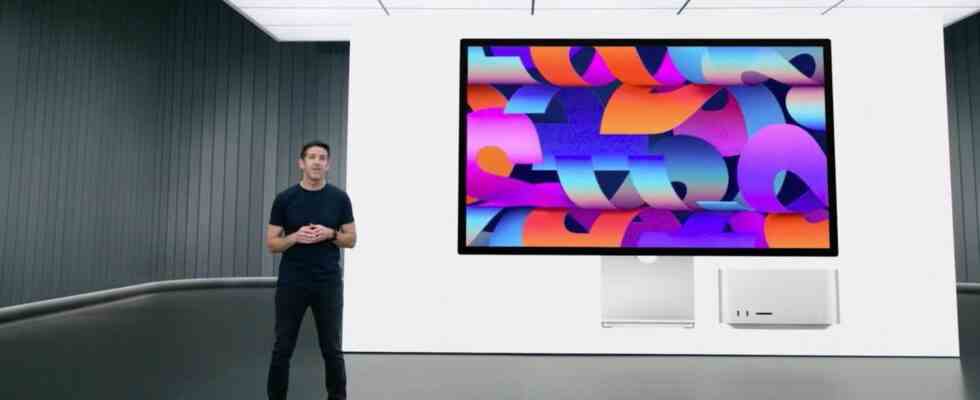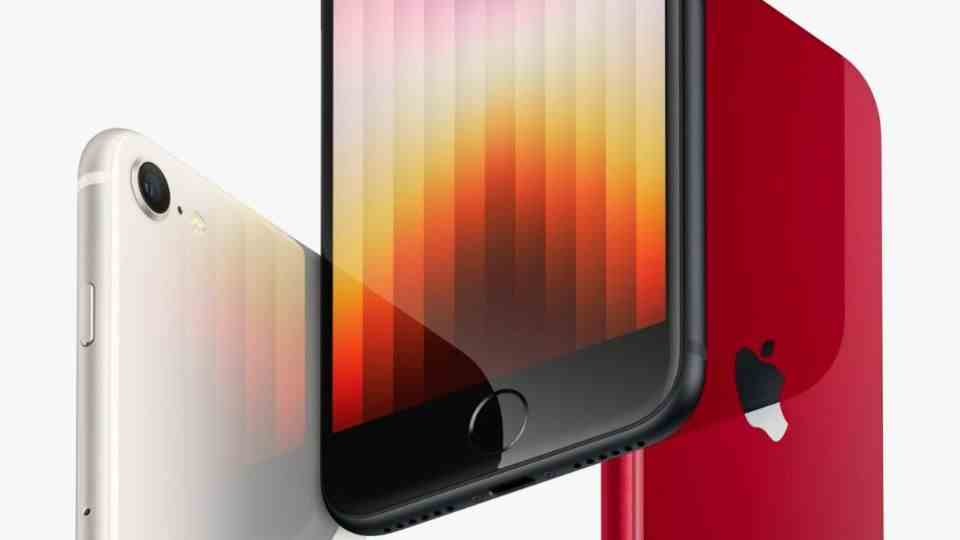“Peek Performance” event
The competition had just caught up – now Apple is chasing them again
When introducing the M1 Ultra, Apple’s chief engineer John Ternus had one last ace up his sleeve
© Apple / PR
It came out of nowhere: At Apple’s spring event, only minor updates for the group’s mid-range products were actually expected. Then CEO Tim Cook struck out with a bang. Hard times are likely for Intel and Co.
It was a surprise how few companies apart from Apple have mastered it to this extent. When Apple boss Tim Cook took the stage at the beginning of the “Peek Performance” product event, no one suspected that Apple would ultimately have turned the computer market inside out. Once again. Because for the competitors, the latest prank of the company should be difficult to digest.
After Apple had done the duty with the expected updates to the iPhone (find out more here) and iPad (find it here) and had announced exciting but not revolutionary products, the CEO and his team turned to the freestyle. And for the third time in two years, redefined what performance can mean in a computer.
Two become one
The group’s new processor, called the M1 Ultra, is simply a revolution. Yet again. While the competitors on the chip market had just recovered from the shock of Apple’s presentation of the M1 at the end of 2020 and the performance boost of the M1 Max that followed last autumn, their dream of getting the challenger under control again soon burst. Intel in particular should have a hard time nibbling at the idea. With the new processors from the Alder Lake series, the flagging chip king managed to overtake Apple’s top processor by just four percent in November. And Apple is already announcing that its Ultra chip is not just a little, but twice as fast as its previous top model.
This is made possible by an interface already integrated in the M1 Max. “The M1 Max has a secret,” revealed hardware boss Johny Srouji. “A hidden feature we just haven’t talked about before.” Thanks to an interface built into all M1 Max, it is possible to combine two of the chips in such a way that the Mac recognizes them as one – and thus double the performance in one fell swoop. This is possible because the chips communicate almost without delay via the fast interface and Apple’s MacOS system can easily scale the performance of the chips.
power midget
As usual, Apple proudly explained what this means in practice in numerous comparisons in the keynote. The chip beats the 10-core Intel of the iMac by 3.8 times, compared to the Mac Pro with a 16-core processor, Apple states a performance increase of 90 percent. Even a Mac Pro with a 28-core CPU – the surcharge for this processor compared to the basic model is 8050 euros – can’t even begin to keep up: the M1 Ultra puts it in the shade with 60 percent more performance.
This is all the more remarkable because the Mac Studio, in which the chip has been exclusively installed up to now, has become shockingly small. At 19.7 x 19.7 centimeters, its footprint is just as small as the Mac Mini, which is primarily intended for light office work. At 9.5 centimetres, it is only 2.6 times as high. And you can still easily carry a full-size computer in your pocket. The fact that it should also consume up to 1000 kilowatt hours less electricity per year makes the competition’s horror scenario perfect.
The worst comes last
The toughest moment of the evening for competitors like Intel was to come after the dizzying tornado of performance evidence. Apple also had an unusually open promise to its fans up its sleeve, which the other chip manufacturers are more likely to have received as an open threat. “We’ve almost completed our transition to proprietary chips,” said chief engineer John Ternus. “Only one thing is missing: the Mac Pro”. In other words, it is by far the most powerful system. “But we’ll save that for later,” he said happily.
The competition will have become very nervous with this announcement at the latest. Up to this point it was conceivable that Apple had already played its most valuable card with the Mac Studio and its M1 Ultra and was slowly phasing out the Mac Pro. That idea was thrown off the table in one fell swoop. Apple will have at least one more powerful computer up its sleeve, otherwise the unusually clear announcement would simply have been skipped.
In view of this, the name of the event itself suddenly seems like a threat. “Peek Performance” is a play on words made up of the term “peak performance” and the word “peek”. The latter represents a glimpse of what is to come, a premonition of what is to come. So Apple didn’t announce the top performance with the name, which was now shown. But also suggests that it could only be the beginning.



